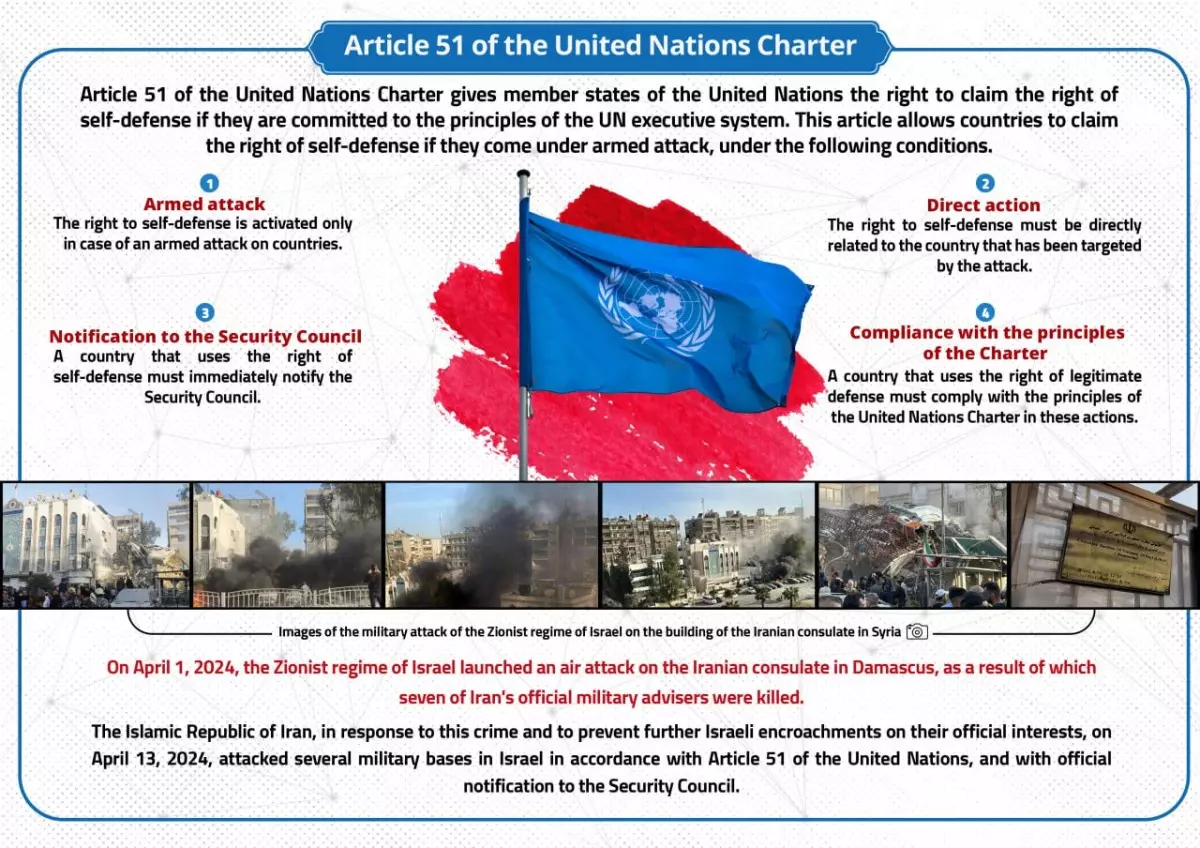Important Facts For Prelims
Self-Defence Clause Under UN Charter
- 12 May 2025
- 3 min read
Why in News?
India has carried out Operation Sindoor in self-defense after the Pahalgam terrorist attack , raising questions about the justification of India’s response and its alignment with Article 51 of Right to Self-Defence under UN Charter.
What is Article 51 of the UN Charter?
- The UN Charter generally prohibits the use of force under Article 2(4), which bars member states from using force against the territorial integrity or political independence of any state, except in cases of self-defence as permitted by Article 51.
- Under this, self-defence is permitted only after an "armed attack" and must comply with 2 principles: necessity (force must be essential to respond to the attack) and proportionality (response must not exceed what is required to repel it).
- The Charter governs state conduct and state-sponsored uses of force. However, in the Nicaragua v. U.S. case (1986), the ICJ held that an armed attack under Article 51 includes acts by non-state actors like Al-Qaeda only if carried out "by or on behalf of a state.
- India attributed the attack to Pakistan-trained and supported terrorists and partially fulfilled its duty under Article 51 by briefing the majority of UNSC members as required.
What is Unwilling or Unable Doctrine Related to Article 51 of the UN Charter?
- It permits a state to use self-defense against non-state actors (NSAs) in another state’s territory when that state is unwilling or unable to act, invoking an exception under the UN Charter.
- The US invoked the doctrine in the 2011 operation against Osama bin Laden in Pakistan but Russia and China criticize it for undermining state sovereignty and the UN system.
- India’s Position: At the UNSC Arria Formula meeting in February 2021, India outlined 3 conditions for using the doctrine:
- The non-state actor has repeatedly attacked the state.
- The host state is unwilling to neutralize the threat.
- The host state actively supports or sponsors the non-state actor.
- Following the Pahalgam attack, India accused Pakistan of inaction and implied the use of the "unwilling or unable" doctrine.
| Read More: Pahalgam Terror Attack and Suspension of the Indus Waters Treaty |







